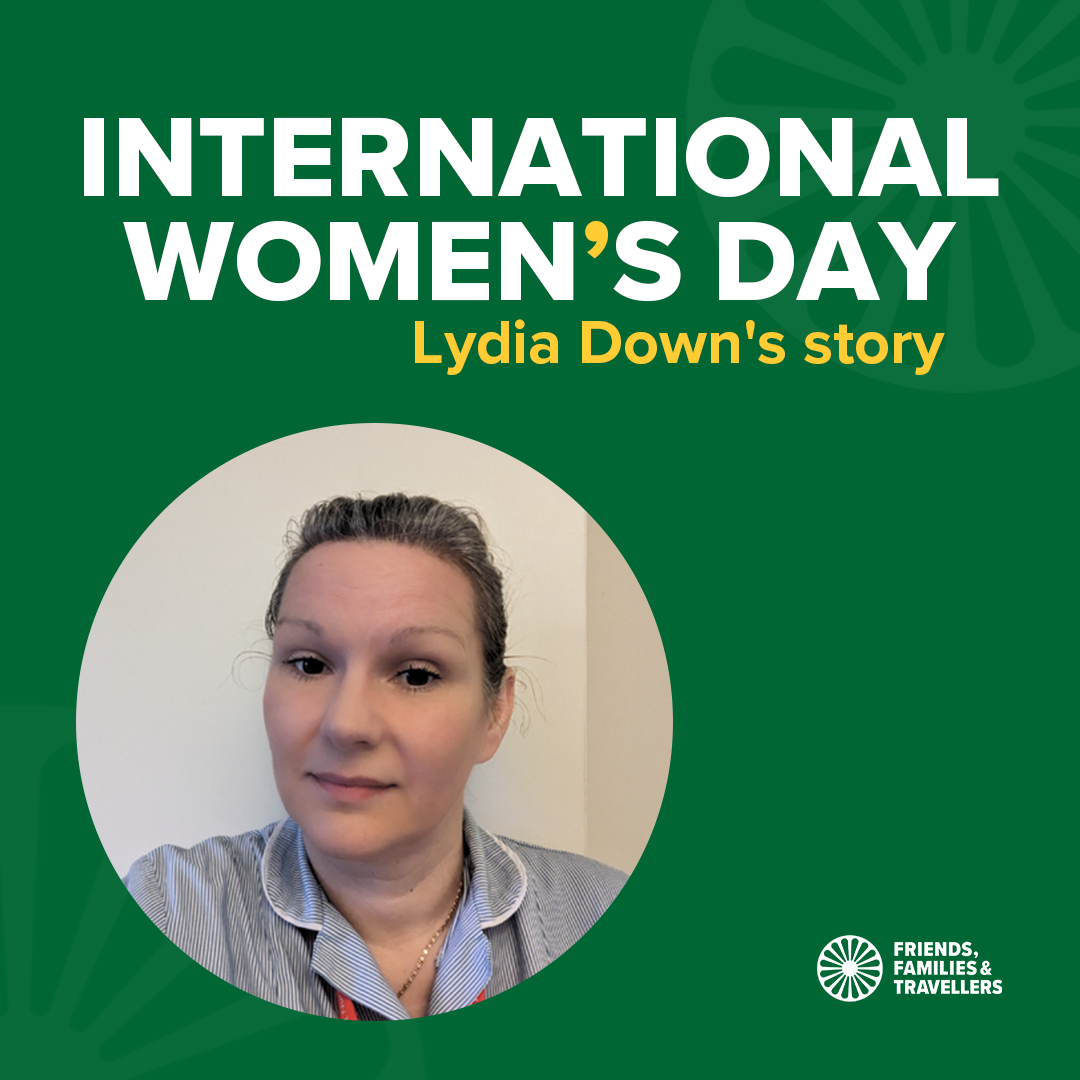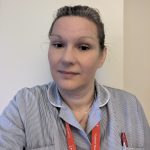Lydia Down is a Romany Gypsy who is studying to become a registered nurse. To mark International Women’s Day, she takes us on her journey from being unable to read and write, to now finishing her degree in nursing, with hopes to go on to tackle the barriers that Gypsies and Travellers face within healthcare settings.
My earliest childhood memories were of growing up in open fields surrounded by my siblings and family as we travelled from town to town, sometimes living on Gypsy sites but mainly on wasteland. It was the only life we knew and none of my siblings had been to school so I wasn’t aware that I could even go to one.
When I was around 7 years old, my parents bought a piece of land and decided that we would settle there. Because of planning rights, we were only allowed to dwell there for a limited period, so to make permanent roots, my parents decided to send me and my younger brother of one year to the local school.
It was a different way of life for us both, and we struggled to fit in with the children because at the age of 6 and 7 years old, we were illiterate and found it difficult to understand the lessons due to no previous education. We spent around a year or maybe less there before my parents decided to move on and sell the land, so back on the road we went.
There were other times over the next couple of years where we tried school but each time it was for a short term, and we were bullied for being different. We began to question what the point was. Our siblings didn’t need to go, so why should we?
I do remember one school in a village where we lived in Wiltshire. The teachers were kind and understanding of our cultural background and would help me to learn, which made me feel that I wasn’t stupid and might be able to learn to read and write. But we moved on, so school stopped again.
I liked learning, but back in the 80s when Gypsies could live more freely, my parents felt that learning our cultural skills was more important than school. Fast forward to 1998, and at the age of 18 after the death of my father, me and my brother decided to get jobs to support our mum.
We were settled in a house for the first time, and I felt we needed to adapt and fit in with the community. I got a job in the village care home, and on my first day (which I loved), I was asked to write the notes for the people I had cared for, but couldn’t because I was still illiterate.
This was a wake-up call as I realised: How would I manage to keep a job without being able to read and write? So, I decided to take evening classes in maths and english. Over time I managed to get a job as a healthcare assistant in the local hospital, and then was offered the chance to study my NVQ in health and social care. I loved nursing so much and would look at the registered nurses and think I wish I was clever enough to be one.
After 15 years of working for the NHS, I saw a post to train as a Registered Nurse Apprentice and wondered whether it would be possible for me. I needed Maths and English Level 2 and NVQ Level 3 as entry requirements. I signed up for them at college and applied, much to my surprise I was accepted.
I have now completed 3 years at Solent University and in May will be awarded BSc (Hons) in Adult Nursing. I have needed no extra learning support from the university, just determination and hard work. I believe that, although in Gypsy communities’ education is not the forefront of priorities, that a basic understanding of maths and english should be taught to all.
I plan to be an advocate for the Gypsy community in my area in Dorset to promote public health and break down some of the barriers in health inequalities my community faces when accessing health services.
Lydia Down
BSc (Hons) in Adult Nursing at Solent University in Southampton.


